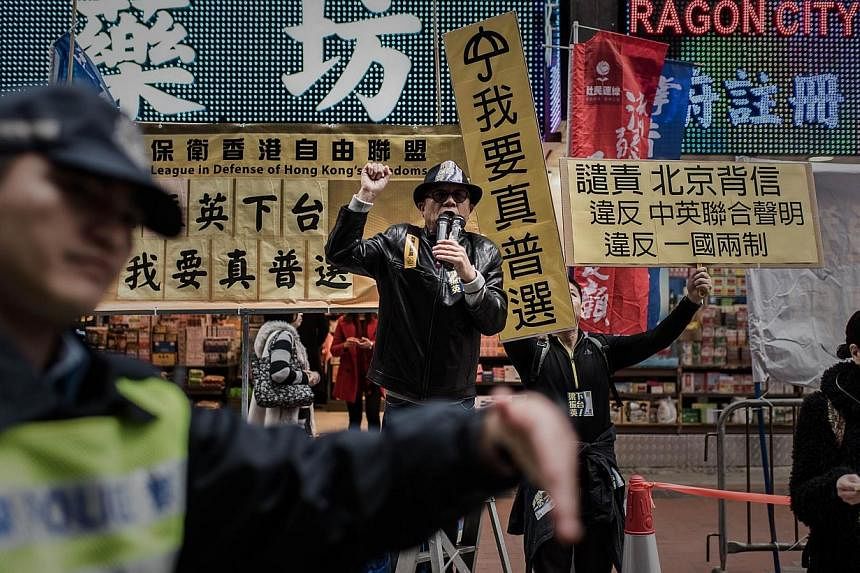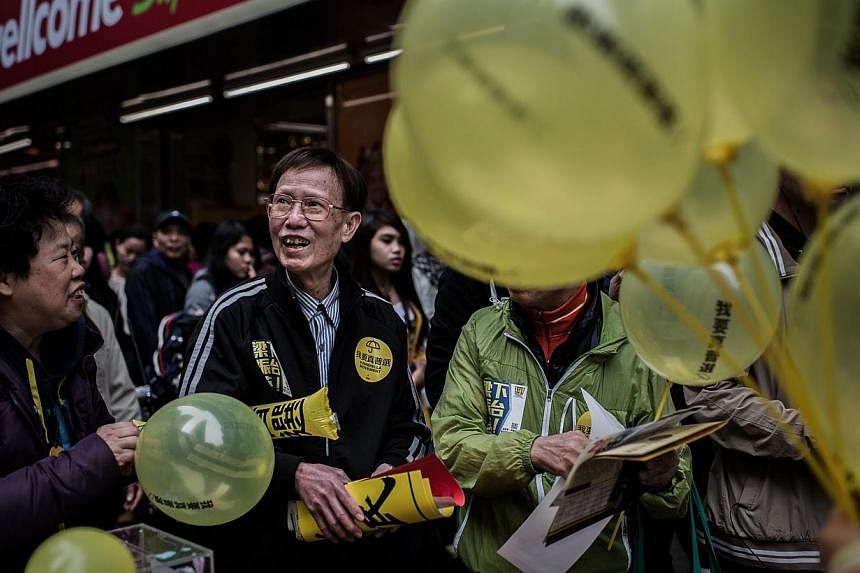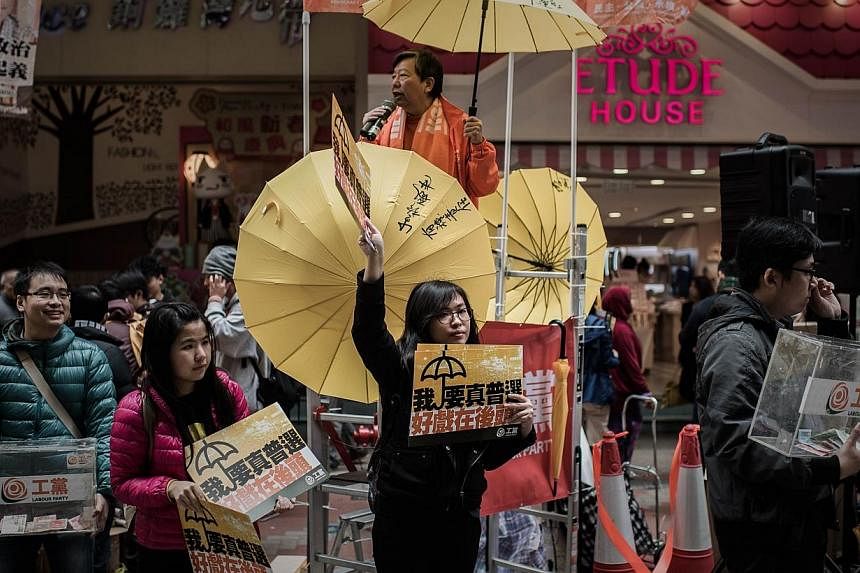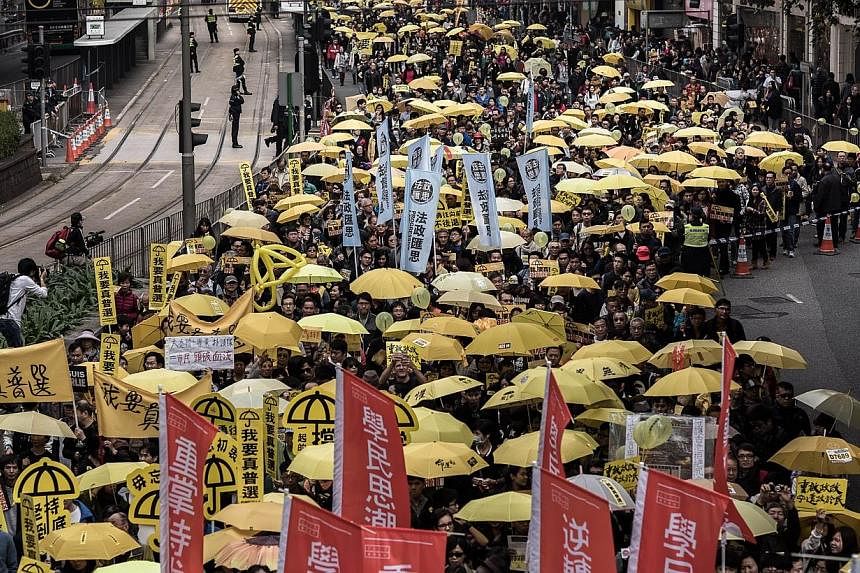HONG KONG (Reuters/AFP) - Thousands of pro-democracy protesters took to the streets of Hong Kong on Sunday for the first time since mass demonstrations shut down parts of the city for more than two months, but the turnout was only a fraction of the 50,000 organisers had hoped for.
A sea of yellow umbrellas - the symbol of the campaign - moved slowly through central Hong Kong with crowds shouting for "true universal suffrage".
Organisers estimated 13,000 people attended - just over a quarter of the 50,000 they had hoped for. "Today's protest wasn't a small one. It was smaller than we expected, but it's wrong to say Hong Kongers have given in to fake democracy," said organiser Daisy Chan.
Police said up to 8,800 people had joined the march, a fraction of the tens of thousands who gathered at the peak of the protests.
Authorities have made no concessions to activists' demands and tensions remain high in the semi-autonomous Chinese territory.
Police took no chances with the protest, deploying some 2,000 officer to flank the protesters as they marched on the city's glitzy shopping and financial districts. They had warned ahead of the rally that demonstrators were likely to once again try to occupy some of Hong Kong's main roads, which were cleared of tented camps in December.
But by late afternoon the march remained peaceful, with no sign that the crowds - including many people carrying yellow balloons - planned to take back the streets.
"We don't have a plan (to reoccupy). If others want to do it, they will have to do it themselves," student leader Alex Chow told AFP.
Despite the disappointing turnout, there was a sense of determination among demonstrators. "We just want to express our frustration with the government in Hong Kong," said protester Ronnie Chan, who is in his 40s and works in sales and marketing.
"We understand there is very little we can do, but if we don't speak out nothing will change."
Hong Kong returned to Chinese rule in 1997 and enjoys wide-ranging freedoms under a so-called "one country two systems" arrangement. Beijing last year allowed elections for choosing the next chief executive in 2017, but wants to screen candidates first.
The plan triggered pro-democracy rallies organised under the Occupy Central campaign. At its peak, the movement drew around 100,000 protesters and saw intermittent violent clashes with police, but public support faded as the weeks dragged by.
Officials in December cleared protest camps which had blocked several main roads.
Sunday's rally will gauge the public's willingness to keep fighting for free leadership elections. The authorities have made no concessions to activists' demands and tensions remain high in the semi-autonomous Chinese territory.
Ms Chan said the rally would show that the Occupy movement, as the protests were known, was a political awakening.
"In the past, these citizens were less political than they are right now. The Occupy movement woke people up."
The founders of the Occupy movement including Benny Tai, along with teenage activist Joshua Wong and other student leaders, are also attending the rally on Sunday.
"This march demonstrates to the citizens that the pro-democracy momentum is not dead," said political analyst Sonny Lo.
But Mr Lo also believes residents are exhausted from protests over political reform.
"At this moment members of the public are tired of politics. The democrats have to strategise very carefully," said Mr Lo, head of the social sciences department at the Hong Kong Institute of Education.
Hong Kong's government is urging the public to support Beijing's electoral plan, which needs the backing of two-thirds of the city's legislature to be passed.
Mr Lam Woon Kwong, convenor of the Executive Council or cabinet, warned campaigners to accept Beijing's framework.
"You can't threaten the central authorities," he told a radio programme on Sunday. "If we can have consensus to have universal suffrage in 2017 first and democratise further later, it would be a more pragmatic approach," he said.
The situation is being closely watched internationally, a reflection of Hong Kong traditional importance as a free commercial centre and port.




